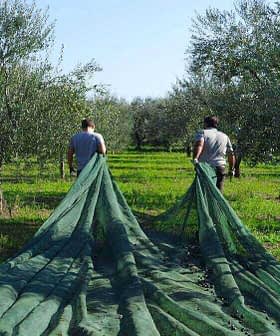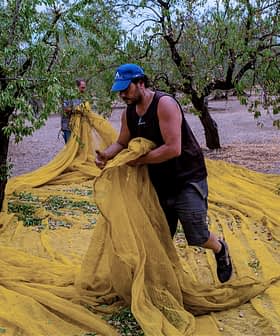An Italian regional court has temporarily suspended the destruction of olive trees in Puglia following a complaint filed by 21 olive growers demanding proof that their trees are infected by Xylella fastidiosa.
On October 14, the court ordered a suspension of the felling of sick trees until November 4, allowing time for further tests can be conducted to determine exactly which disease has infected the trees.
The Xylella fastidiosa bacterium, spread by insects, has been blamed for the devastation of over 74,000 acres of olive groves in Puglia’s Salento region, located in the “heel” of Italy’s “boot.”
In response to the crisis, an action plan was implemented by the Italian commissioner responsible for the State Forestry of Apulia, Giuseppe Silletti, which called for the selective uprooting of infected trees. This was backed by European Union measures recommending the destruction of all infected olive trees, as well as those within a 100-meter radius.
See Also:Complete Coverage of the Xylella Fastidiosa Outbreak
The eradication measures were met from the beginning with opposition from olive growers and activists, who wanted to avoid the destruction of Puglia’s olive trees, some of which are hundreds of years old.
There is also the question of whether the trees are really infected by Xylella fastidiosa, as to date there is no hard evidence it is the solo cause of the devastating illness in the trees.
Many are questioning whether eradication is the only and best solution, and if it can really stop the spread of the bacterium.
Activists have joined hands with olive growers to fight the destruction of trees via legal channels, and have encouraged the planting of new seedlings in an act of civil disobedience. Protestors have climbed trees and blocked roads to prevent the forestry department from reaching the trees tagged for removal.
A crowdfunding campaign is underway to raise funds to cover the €1,000 fine olive growers can be levied for noncompliance. Growers whose trees have been marked for eradication must either cut down their trees themselves or allow the forestry department to do it in exchange for compensation for their losses.
The moratorium is a temporary victory for the olive growers who initiated the lawsuit and the activists supporting them, as they await scientific proof of whether their trees are infected by Xylella fastidiosa. However, Silletti is demanding that the forestry department continue with its action plan, under which 1,000 trees have already been destroyed.








